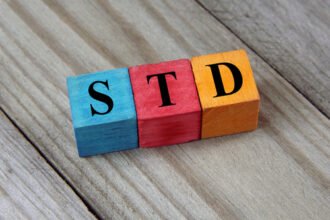Disclaimer ? I am not a medical doctor or therapist. The opinions offered here are based off an experience with a family member battling addiction. I hope you find the information presented useful, but in no way should this article replace the sound advice of a trained medical professional. If you ever feel suicidal or out of control, please call or chat with the Suicide Prevention Hotline: 1-800-273-8255.
I?ve lost count of the number of times our family has discussed the needs of my cousin who suffers at the hands of an addictive personality. Whether it?s alcohol or cocaine, once he starts it?s very difficult for him to stop. His behavior reminds me of a computer that?s been programmed to follow a specific program or set of instructions. Advances in fighting addiction and its treatment can?t come soon enough. 23.5 million Americans suffer with addiction every day. One of the challenges I?ve heard industry professionals lament is the ability (or lack there of) for professionals to peek inside the brain and understand what is afflicting their patients in real-time.
Understanding When to Seek Help
Mental illness is clearly something that runs in my family. My initial reaction, like many people, to family and friends telling me they were seeking help for a mental disorder was to view them as weak individuals with poor self-control. I learned first-hand that this outlook is incredibly ignorant. For example, my cousin spent his holiday break from school with us last year. He spent the entire week laying in bed. He slept until noon and raided our family?s liquor cabinet at night (this is before we were made painstakingly aware that he had a problem with alcohol). We definitely witnessed the warning signs. I was the first to approach him about his odd behavior. In fact, over the course of a few months of uncomfortable conversations, I was able to convince him to seek treatment. Based on an outsider?s perspective, here are the warning signs I would look for, especially if you think you may have a problem:
- Your daily activities are becoming negatively impacted, or involve compensating for a need to consume copious amounts of substances in order to get through the day.
- Your friends and family start to distance themselves, while a select few (the people you need during this time more than ever) provide honest feedback and offers of support.
- Your finances take a hit due to out of control spending, or an inability to earn a steady income as a result of your addiction or personality disorder.
Technology is Changing the Face of Treatment
If any of the above warning signs sound familiar, it?s time to start talking to a professional. Thankfully, technology is dramatically improving how care and treatment is delivered. But even with amazing technology, getting help quickly is important. According to addiction specialists, ??during active addiction, the chronic use of mood and mind-altering substances can have a profound impact on brain activity and brain chemistry.? Some of these effects are short-term, while others have long-term impacts. Getting accurate information about what is happening in the brain can be mapped using EEG Brain Mapping. This process of non-invasively monitoring the brain?s electrical activity can show where and how neurological activity is being processed. This type of information is critical for the effective treatment of broader mental disorders that contribute to addictive personalities. After my cousin spent some time in a treatment facility, he described a fog being lifted from his world. He felt like he was thinking clearly again, and able to logically appreciate the factors contributing to his addiction. The battle to stay clean and sober is a constant struggle, but with the support of an outpatient treatment program, as well as family and friends, it?s possible to make a dramatic change in the trajectory of your life. Please, don?t be ashamed. Be honest about your needs and get help.









